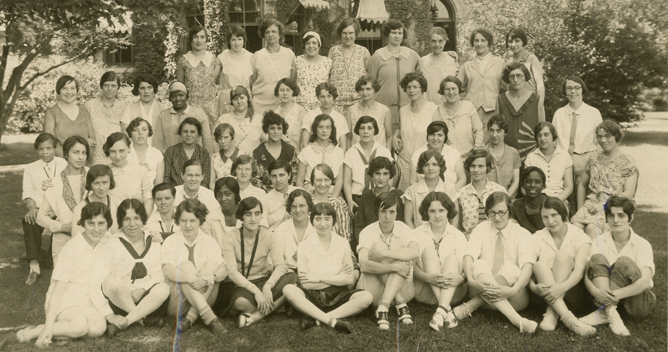Capturing the Past, Delivering in the Present, Affecting the Future
Speaker Bio
Dr. Ellen J. Staurowsky is a full professor in the Department of Sport Management at Drexel University. She is internationally recognized as an expert on social justice issues in sport which include gender equity and Title IX, pay equity and equal employment opportunity, the exploitation of athletes, the faculty role in reforming college sport, representation of women in sport media, and the misappropriation of American Indian imagery in sport. She is co-author of the book, College Athletes for Hire: The Evolution and Legacy of the NCAA Amateur Myth. In addition to publications in scholarly journals such as the Harvard Journal of Law and Gender, Journal of Sport and Social, Issues, Sociology of Sport Journal, Quest, Journal of Sport Management, the International Journal of Sport Sociology, the Marquette Sports Law Review, the Journal of Legal Aspects of Sport, and the International Journal of Sport History, her critiques and analyses on a variety of issues have appeared in The Chronicle of Higher Education, Street & Smith's SportsBusiness Journal, The NCAA News, The New York Times, Huffington Post, The Atlantic Magazine, Athletic Management Magazine, College Athletic Clips, and News From Indian Country.
Karen Weaver, Ed.D. Prior to joining the Sport Management program at Drexel University as a full-time faculty member, Dr. Weaver was the Athletic Director at Penn State Abington. During her tenure, Penn State Abington underwent a dramatic re-birth as a member of the North Eastern Athletic Conference, the Eastern Collegiate Athletic Conference, and a provisional member of the NCAA in Division III. Under Dr. Weaver, Penn State Abington's athletics program added six teams, eight head coaches, and more than 100 athletic opportunities for student athletes in just three years.
Abstract
In a 2011 essay, Shawn Ladda, president of the National Association for Girls and Women in Sport (NAGWS), observed that the history surrounding women's sport in the United States is muted, hardly discernible within the overall cultural and social context of what is known about men in sport. Ladda found that significant portions of the stories of women's teams were missing from college websites, especially the work of women coaches and athletes who often had to challenge administrations in order to gain access to athletic opportunities, facilities, funding, and coaching support. The field lacks a cohesive published history that spans the full expanse of contributions made by an unknown number of women physical educators, coaches, administrators, and athletes who played and worked in obscurity but left behind a legacy seen on college campuses today. With each passing generation, that connection between the past and present becomes less visible, less known, and knowable because it has not been documented. At Drexel University, faculty in sport management working alongside of library archivists are embarking on a project to preserve and promulgate this early collegiate and club sport history through the development of a digital archival collection that will include digitized primary source texts and video oral histories.
Capturing the Past, Delivering in the Present, Affecting the Future
In a 2011 essay, Shawn Ladda, president of the National Association for Girls and Women in Sport (NAGWS), observed that the history surrounding women's sport in the United States is muted, hardly discernible within the overall cultural and social context of what is known about men in sport. Ladda found that significant portions of the stories of women's teams were missing from college websites, especially the work of women coaches and athletes who often had to challenge administrations in order to gain access to athletic opportunities, facilities, funding, and coaching support. The field lacks a cohesive published history that spans the full expanse of contributions made by an unknown number of women physical educators, coaches, administrators, and athletes who played and worked in obscurity but left behind a legacy seen on college campuses today. With each passing generation, that connection between the past and present becomes less visible, less known, and knowable because it has not been documented. At Drexel University, faculty in sport management working alongside of library archivists are embarking on a project to preserve and promulgate this early collegiate and club sport history through the development of a digital archival collection that will include digitized primary source texts and video oral histories.
